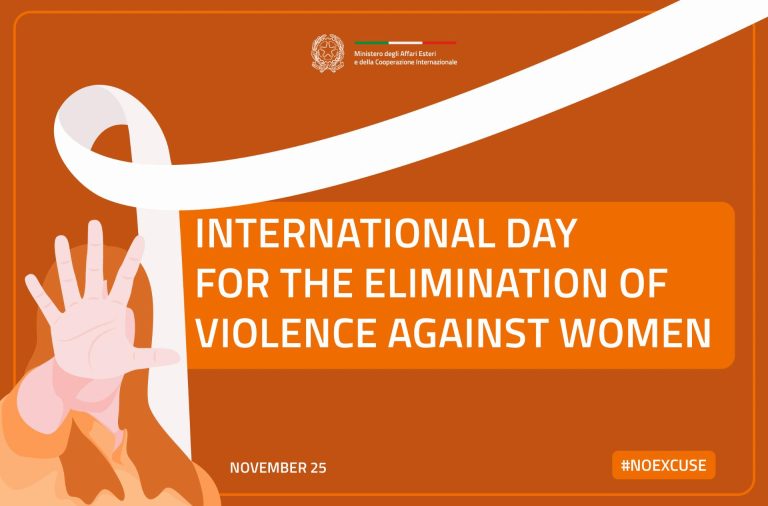



“An evening, a first time, that will be remembered for a long time.”
In Erbil, last December 11, in the Chaldean Cathedral Saint Joseph of Ankawa, the Christian quarter considered the largest in the Middle East, where twelve different Christian denominations are currently based, over 700 people attended the performance of the Italian Ensemble Trio directed by Prof. Maria Teresa Strappati, supported by joint performances with the String Orchestra of the local Salahaddin University and the Choir of the Sisters of the Diocese of Erbil conducted by Sister Narjis Henti, who also carried out her musical studies in Rome.
A repertoire that ranged from the classics of La Traviata, to Carmen, to Cavalleria Rusticana and a tribute to Maestro Ennio Morricone and then moved on to some engaging liturgies of the local tradition and finally concluded with the most typical Christmas singing fantasies.
Numerous authorities were present, including Fawzi Hariri, Chief of Staff of President Nechirvan Barzani; the Governor of Erbil Omed Khoshnaw; the Minister of Transport Ano Abdoka, who represents the Christian component in the Kurdish Regional Government; the Deputy Head of the Department of Foreign Relations Daban Shadala, the Secretary General of the High Council of Women of Kurdistan Khanzad Ahmad and others, including some Mullahs and many Muslims.
“The spirit of this evening, in a Middle East animated by new dramatic tensions, is intended to be a message of inclusiveness, dialogue and peace, in the wake of Italy’s commitment to freedom of religion and interreligious dialogue. To do so, we have chosen one of those arts that distinguish us as Italians: music. And we were able to do so because thanks to the support of Archbishop Bashar Warda”, which gave us this beautiful setting of the Ankawa Cathedral.” This is how Consul Camerota begins, and if he rarely indulges in triumphalist tones, this time he does not shy away from expressing emotion and satisfaction for an evening that will be remembered for a long time and which, many hope, will be only the first of its kind. Finally, the Consul recalled that the concert takes place just a few days after the recognition by UNESCO of Italian Opera Singing as an Intangible Heritage of Humanity.
(ANSA) – ROME, 18 DEC – There were more than 700 people attending the concert organized by the Italian Ensemble Trio conducted by Maria Teresa Strappati in the Chaldean Cathedral of St. Joseph in Erbil, capital of Iraqi Kurdistan and flanked by the String Orchestra of the local Salahaddin University and the Choir of the Sisters of the Diocese of Erbil conducted by Sister Narjis Henti. This was reported by the consul of Italy in Erbil, Michele Camerota, in a statement.
“It was an evening, a first time, one of those that, without rhetoric, will be remembered for a long time,” Camerota said on the sidelines of the concert held in the Ankawa district, inhabited mainly by Christians.
“A repertoire that ranged from the classics of La Traviata, to Carmen, to Cavalleria Rusticana and a tribute to Maestro Ennio Morricone and then moved on to some melancholic and engaging liturgies of the local tradition and concluded with the most typical Christmas singing fantasies,” reads the press release.
According to the consul, “the spirit of this evening, in a Middle East animated by new dramatic tensions, is intended to be a message of inclusiveness, dialogue and peace, in the wake of Italy’s commitment to freedom of religion and inter-religious dialogue. To do this – added Camerota – we have chosen one of those arts that distinguish us as Italians: music. And we were able to do so because we had the immediate support of Archbishop Bashar Warda, who spoke at the event, who granted us this splendid setting of the Ankawa Cathedral.”
According to the statement, “numerous authorities were present, including Fawzi Hariri, chief of staff of Iraqi-Kurdish President Nechirvan Barzani, the governor of Erbil, Omed Khoshnaw, the Minister of Transport, Ano Abdoka, who represents the Christian component in the Kurdish Regional Government, the Deputy Head of Foreign Relations Daban Shadala, the Secretary General of the High Council of Women of Kurdistan, Khanzad Ahmad”, and many others, including Muslim religious authorities.










